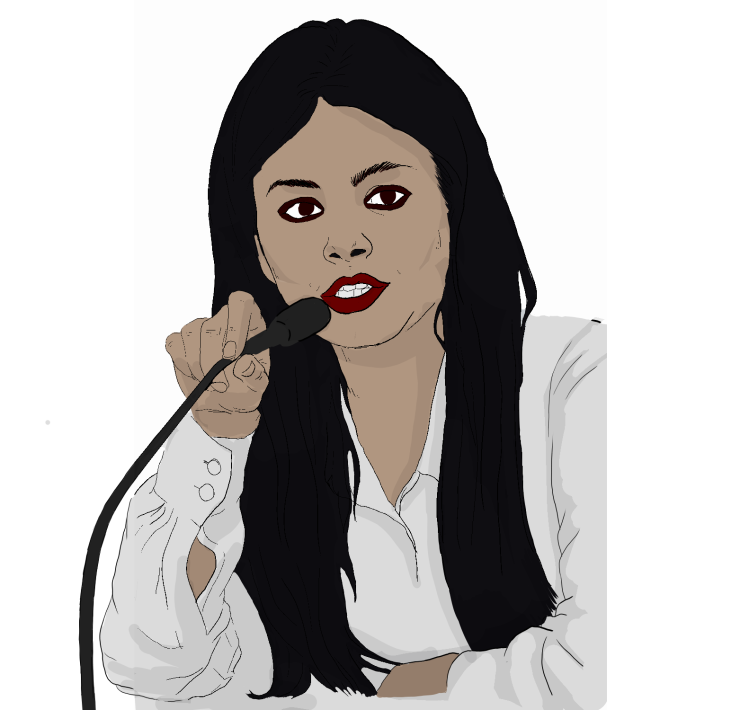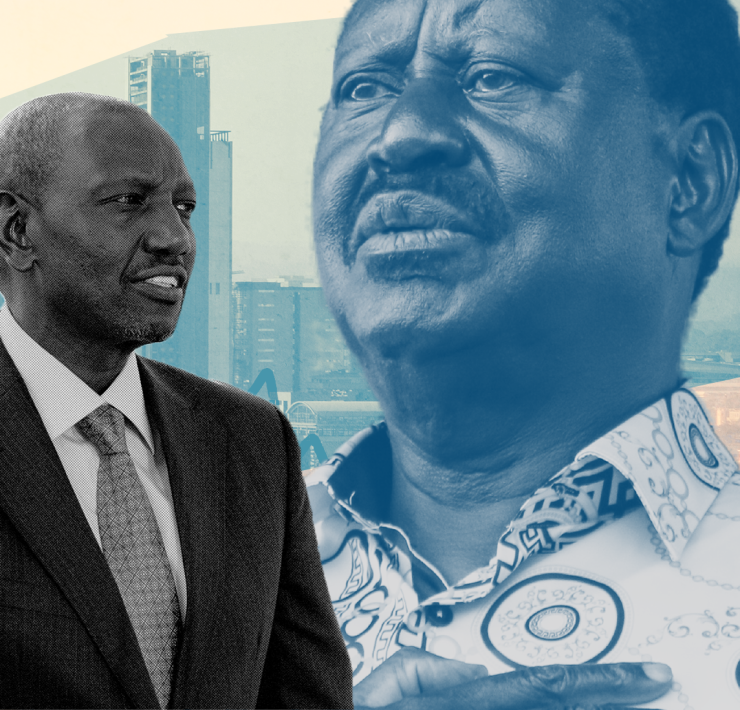Just over a month ago, it came to light that President William Ruto has, on the advice of the Advisory Committee on the Power of Mercy, freed 5,058 petty convicts, commuted sentences for death row prisoners to life imprisonment, and pardoned 37 convicts including Dr. Davy Koech, once famous for his attempt in the 1980s to find an AIDS cure, but recently notorious for mismanagement of the Kenya Medical Research Institute (KeMRI). For obvious reasons, the July 2023 Presidential Pardon List has been added to the ever increasing number of complaints about President Ruto’s use of executive power, daily compiled by his opponents, as if he had usurped the prerogative of mercy for himself.
But reasonable persons must agree that the antecedents of the 37 lucky convicts raise questions for the President and the committee which advised him on these particular beneficiaries. Amnesty International has urged a re-examination of the Power of Mercy by the Senate’s Justice, Legal Affairs and Human Rights Committee, including a scrutiny of the July 2023 Pardon List to determine whether the pardons were in the public interest or unduly influenced. Predictably, the Azimio La Umoja One Kenya Alliance Party swore to go to court to challenge this presidential prerogative. The vexing question here is who determines whether or not a particular act of clemency is in the public interest? Should we pretend that we don’t see its utility as a political tool, dating back to the days it was the preserve of Emperors, Kings and Chiefs?
The power of mercy was entrenched in our Constitution at independence. I first heard of it as a child when Jomo Kenyatta ordered the Constitution amended to allow him to pardon his fellow Kapenguria prison inmate the nationalist Paul Ngei. At the time, Ngei was disqualified from running for parliament having been convicted in court for an election offence. In essence, Ngei’s political career was over. But Kenyatta used his freshly minted powers to pardon Ngei for all his election offences, allowing him to win a by-election in Kangundo constituency, and return to both cabinet and parliament. In return, Ngei remained fiercely loyal to the Kenyatta family, leading the Change the Constitution Movement of 1976 which tried to re-write the automatic line of succession in the event of the death of the president. This chicanery was meant to make it impossible for vice president Daniel arap Moi to succeed the ailing and aged Kenyatta as president. Ngei’s group’s preferred successor was a relative of Jomo, Njoroge Mungai.
A decade later, during the Miller Commission of Inquiry into allegations involving Charles Mugane Njonjo, it came to pass that, while Attorney General and even after that, Charles Njonjo had arrogated the Power of Mercy to himself and ordered prisoners released from jail on pardons and commutations he had ordered. The Commission heard that convicts were taken from prisons to his home in Muthaiga for release ceremonies. In such a manner did he release two MPs jailed for 5 years each for theft of coffee, Jesse Gachago and Godfrey Muchiri, apparently as a political favour to Njenga Karume. The Njonjo Commission found that of all the pardons they heard about, 6 out of 7 pardons were of criminal convicts from Kikuyu constituency. At the time, Njonjo was planning to run for this parliamentary seat at the next election. Ultimately, Njonjo himself was in 1984 a beneficiary of a presidential pardon from president Daniel arap Moi, whom Njonjo was accused of attempting to overthrow during 1982 and 1983. At this point Njonjo praised Moi for his Christian wisdom in finding him fit to be pardoned. In reality, Njonjo was a substantial establishment personality, not like the soldiers and airmen who also in 1982 mounted a failed coup d’état. They were hung from the neck, or served full jail terms.
In the United States, there was a real fear that Donald Trump as he exited the White House three years ago had left a pardon for himself. Even he didn’t go that far, but he did pardon his daughter’s father-in-law and various political aides just before leaving office. Bill Clinton’s last minute pardon of fugitive billionaire Marc Rich was thoroughly investigated and found to be above board. Suspicion had been aroused by the fact that Rich’s wife was one of the Clinton’s largest donors and campaign fundraisers. Gerald Ford pardoned Richard Nixon of the Watergate infamy as a supreme act of realpolitik to preserve the mystery of the American presidency a little longer by keeping ex-presidents out of jail. The latest legal woes of Donald Trump threaten to debase the American presidency to Korean, French, Israeli and Italian levels.
South African president Cyril Ramaphosa recently saw the sense in extending mercy to Jacob Zuma and not sending him back to prison. This was pragmatism; two years ago when he took Zuma into custody South Africa burnt for days at a terrible human and economic cost. Ramaphosa did not want to pardon Zuma openly, so he ordered a 12-month reduction of the sentences of all prisoners not serving time for certain categories of serious or violent crime. Low-risk offenders got an additional 12-month remission of their sentences. Thus, Jacob Zuma and 9,500 inmates walked free.
My last stop on this global tour of mercy is Russia. To supplement meagre conscription, the Russian government has for the last year allowed the Wagner Group, a private army, to recruit circa 50,000 men from jails. The deal is straightforward; a hardcore prisoner is offered the opportunity to leave prison on a furlough contract which requires him to serve on the frontline in Ukraine for six months. If he survives the deadly tour, he is free to go back to civilian life, the facts of recidivism notwithstanding. By this method, the Wagner Group swelled its ranks.
Returning to Kenya’s Mercy Street, let’s have more transparency in the work of the Advisory Committee. The recommendation process must have a place for the victims and survivors of the persons who are to be released. Victims and survivors must be told about relevant mercy applications and be invited to some form of impact hearing before the President is handed a list of names to forgive. At present, the procedure allows the Committee discretion, whether or not to contact victims.
In conclusion, not all pardons are devoid of merit; and some are a matter of national conscience. I have in mind global examples of instances where posthumous pardons have been used to clear the names and restore the honour of victims of miscarriages of justice. By such pardons, society can repudiate past injustices and restoring faith in the legal system, as was done in the case of the 1992 posthumous pardon of Derek Bentley, 40 years after his wrongful conviction and hanging; the 2013 pardon of the nine Scottsboro Boys who served a combined total of 130 years for crimes they did not commit; and the case of mathematician Alan Turing, pardoned to great effect by Queen Elizabeth II of the UK in 2013.
In my ideal world, we would expunge our judicial records of the six decade old convictions of heroes such as Dedan Kimathi, Kuruma son of Kaniu and all those convicted during the 1952 – 1960 State of Emergency in Kenya. They were righteously involved in a revolutionary liberation struggle against a colonial foreign power. Whereas those who fought for the British, including Kenyans, were granted amnesty, our freedom fighters and their supporters never had their names cleansed of dubious criminal convictions for their struggle for independence. As the Bard wrote, the quality of mercy is not strained, it falls from the heavens like gentle rain, or words to that effect. Around the world, the power to order criminal pardons by heads of state attracts controversy, and we the people want this power (re)strained. But are we being reasonable about it?
Author
-
Mwalimu Mati is a Kenyan lawyer and governance consultant with over 25 years of work experience in the fields of economic governance, anti-corruption, research, advocacy and publication. Mati was the Chief Executive Officer of Mars Group Kenya, one of Kenya’s leading anti-corruption and fiscal transparency watchdogs, as well as publisher of www.marsgroupkenya.org, in its time Kenya’s largest governance web portal which specialised in anti-corruption and financial analysis. Previously, Mati was Executive Director of Transparency International (2006-2007), before which role he served the same organization as Deputy Executive Director (2002-2006). Mati cut his teeth in the 90s working as Programme Officer at the Public Law Institute, where he worked for close to a decade. Driven by his life-mission which is to empower citizens to demand accountability by sharing knowledge, Mati has been at the forefront in the provision of information resources of all forms and shapes to the public as he seeks to promote transparency in public and corporate sectors. Mati consults for Kenyan and international corporations and development agencies in strategy development, programme review and analysis, due diligence background checks and his specialist field of governance and anti-corruption. Mati is widely published locally and internationally, and has led in the writing and publication of some of Kenya’s most ground breaking governance and anti-corruption reports
Mwalimu Mati is a Kenyan lawyer and governance consultant with over 25 years of work experience in the fields of economic governance, anti-corruption, research, advocacy and publication. Mati was the Chief Executive Officer of Mars Group Kenya, one of Kenya’s leading anti-corruption and fiscal transparency watchdogs, as well as publisher of www.marsgroupkenya.org, in its time Kenya’s largest governance web portal which specialised in anti-corruption and financial analysis. Previously, Mati was Executive Director of Transparency International (2006-2007), before which role he served the same organization as Deputy Executive Director (2002-2006). Mati cut his teeth in the 90s working as Programme Officer at the Public Law Institute, where he worked for close to a decade. Driven by his life-mission which is to empower citizens to demand accountability by sharing knowledge, Mati has been at the forefront in the provision of information resources of all forms and shapes to the public as he seeks to promote transparency in public and corporate sectors. Mati consults for Kenyan and international corporations and development agencies in strategy development, programme review and analysis, due diligence background checks and his specialist field of governance and anti-corruption. Mati is widely published locally and internationally, and has led in the writing and publication of some of Kenya’s most ground breaking governance and anti-corruption reports







